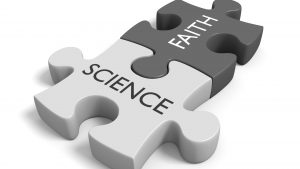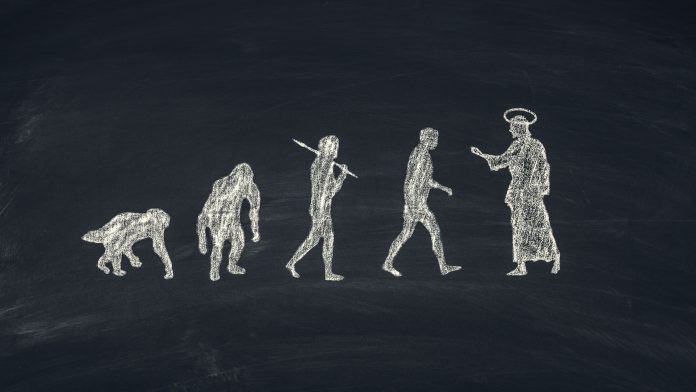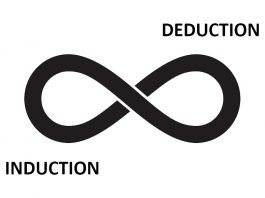Michael J Reiss, Professor of Science Education at UCL Institute of Education, University College London, UK, discusses some of the challenges of teaching evolution in schools and colleges to students who may have seemingly conflicting religious beliefs, and how they can be resolved.
Some schools of thought continue to believe that religion and science are irreconcilable. And yet, some scientific models, such as evolutionary theory, are not wholly rejected by all religious doctrines, and many of those who teach science do not necessarily see the two as being at odds.
Nevertheless, numerous challenges can arise when attempting to teach evolutionary theory to students who may have seemingly conflicting religious beliefs, from incorporating theology into scientific lessons to including the concept of theistic evolution, to understanding the role that the Arts can play.
The Innovation Platform spoke to Michael J Reiss, Professor of Science Education at UCL Institute of Education, University College London, UK, about some of these challenges, as well as how teaching evolution as a ‘sensitive subject’ may enable a better understanding of evolutionary theory, regardless of the student’s religious or cultural beliefs.
Are science and religion in conflict?
One of the most frequent claims about science and religion is that they are in conflict. This has been a common argument for over a century since John William Draper first produced his influential book History of the Conflict between Religion and Science in 1875. Although academic historians have long criticised it strongly, this book has had a powerful effect on popular imagination, reinforced by the likes of Richard Dawkins, Daniel Dennett, Sam Harris and Christopher Hitchens – sometimes referred to as the ‘Four Horsemen of New Atheism’.
At the other extreme are those who argue that not only is there no conflict between science and religion but there can’t be. This is claimed to be partly because they both study different areas of human experience and knowledge and partly because they have different methods of arriving at reliable knowledge. After all, the methods of the natural sciences, with their search for objective truth and their emphasis on repeatability and experimentation, are very different from how any of the world religions understand religious knowledge and how one gains it.
As is so often the case in life, the truth is probably somewhat in between these two polar views. If religion starts to make claims about such things as how the Earth began or if science starts to claim that miracles don’t occur, then conflict does indeed result. Of course, a certain amount of conflict may be no bad thing. There is disagreement within even the happiest of families and conflict can simply be the result of people feeling strongly about matters.

Challenges when teaching evolution to students with religious views
The fact that there can be conflict between religion and science means that when biology teachers teach about evolution in schools, colleges, or universities, there can indeed be challenges that simply don’t arise when teaching about cell structure or mammalian physiology. One sort of problem arises when the teacher believes that science and religion conflict and there are students in the class who have a religious faith.
In such circumstances, students can respond in a number of ways. They can try to argue with their teacher. Often this doesn’t go well – teachers have a degree of authority over students and a biology teacher almost always knows more science than a student does. Another response is for students to keep quiet but decide that biology is not for them. As a former biology teacher who has a conventional Christian faith, this pains me. I don’t mind students choosing not to continue with biology because they simply don’t enjoy it or would rather study something else, but it is very unfortunate if they reject biology because their biology teacher has given them the impression that there is a necessary conflict between the scientific understanding of evolution and religious faith.
When teaching evolution, should theology be included too?
So, is the way forward for biology teaching to include a certain amount of theology teaching too? My own view is that this is almost never a good idea for a number of reasons. First of all, biology lessons should pretty much be about teaching biology. Secondly, very few biology teachers are good at teaching theology. In the UK we are fortunate in our schools in that there are specialist teachers of religion who teach the subject of religious education. By and large, that is the place for teaching about theology in schools.
Of course, it’s great if occasionally there is team teaching – where a biology teacher and a teacher with expertise in teaching about religion teach together. But such teaching is rare. It takes time to set up and needs careful timetabling so that both teachers are available at the same time to teach the one class.

Should students be taught theistic evolution?
Theistic evolution is the view that religious faith and the scientific understanding of evolution are not just compatible but part of a single overall way of understanding what is going on. I regard myself as a theistic evolutionist. I have a PhD and post-doc in evolutionary biology and hold a totally mainstream view of evolution. Put succinctly, the Earth is about 4.7 billion years old and all life today comes from a common ancestor that evolved over three billion years ago. Life comes from inorganic ancestors and did not require any miraculous spark.
The religious part of me – and this is a metaphor, I cannot be separated into a religious part and a scientific part – sees God as endowing the creation, God’s creation, with a degree of open-endedness. It is this open-endedness which has given rise to the quite extraordinary diversity of life on Earth today, a diversity that humans are now curtailing, principally through habitat destruction.
I do not think students should be taught about theistic evolution in the biology classroom for the reasons I gave above – most biology teachers aren’t terribly good at it. In countries where religion is taught in schools, colleges, or universities, that is the place to teach about theistic evolution. It should not be taught as the solution of the evolution-religion issue, but as one understanding of it. It is good for students to be taught about the full range of ways that people understand the relationship between religions and science/evolution. Indeed, there are big differences between how the world’s various religions understand science in general and evolution in particular.
Should evolution be taught as a sensitive subject?
Evolution is often thought of as a controversial subject and, in the everyday sense of the term, it clearly is controversial. But we don’t want students to think that evolution is controversial in the sense that professional scientists are not sure whether it occurred or not. That is not the case. The overwhelming majority of scientists see evolution as a cornerstone of modern biology. It has much the same place as the Periodic Table does in chemistry, or quantum mechanics in physics. Of course, you can still do quite a bit of chemistry if you reject the Periodic Table and quite a bit of physics if you don’t accept quantum mechanics, but you end up with an emaciated chemistry and physics.
I have argued that a more helpful way forward may be to treat evolution as a sensitive issue. This shifts the debate from one to do with epistemology (valid knowledge) to one to do with pedagogy (high-quality teaching). Furthermore, many teachers are rather good at dealing with sensitive issues. They almost instinctively know when to adjust their tone of voice and way of dealing with a classroom situation when they can see what someone is angry, confused, or upset.
What should be the aim of evolution education?
Biologists often assume that the aim of teaching about evolution should be to persuade students of the truth of evolution. I prefer to think of it somewhat differently. While I myself accept the truth, the reality, of evolution, I think it’s better to have as an aim of teaching, not that students accept the theory of evolution, but that they understand it. This goes hand-in-hand with treating evolution as a sensitive subject. After all, if you come from a family that rejects the theory of evolution, seeing it even as the work of the devil, who am I to seek to persuade you that it is true and, by inference, that your family is wrong? Better that I simply seek to ensure that you understand it.
Some people reject evolution because they have been taught that it contradicts the Second Law of Thermodynamics (that the amount of disorder in a closed system increases over time) or because they think it makes no sense that there are apes in existence today when evolution says that we are ‘descended from apes’. These are the sorts of scientific misconceptions that good teaching about evolution can address. It can even be that some learners who have rejected evolution for such reasons soften their objections to it as a result of high-quality biology teaching.

What should churches and other religious organisations teach about evolution?
Most churches, mosques, synagogues, temples, and other places of worship say rather little about evolution; some rail against it; a few are positive about it. As a religious believer and science educator I obviously think that it isn’t helpful for those in a position of religious authority to pit science and religion against each other. Done well, there is a place for religious organisations to help foster a more productive dialogue, and in recent decades this is increasingly being done. The Faraday Institute for Science and Religion in Cambridge, for example, has done this successfully since 2006.
Is there a role for the Arts in teaching about evolution?
Finally, there is an important role for the Arts in teaching about evolution. There is increasing interest more generally in what is sometimes called ‘STEAM’ education – Science, Technology, Engineering, Arts, and Mathematics. One of the advantages of getting the Arts involved in teaching about evolution is that the Arts often approach issues differently. They can help us break away from what can be somewhat tired debates about whether science and religion are compatible, looking instead in more depth at particular instances of how science and religion interact, using media such as theatre, dance, music, or text.
In whatever ways evolution education is undertaken, I want leaners to appreciate that science requires creativity and religious faith requires a similar openness to what is new. In a time of ecological crisis and COVID-19, we need more people, including those with a religious faith, to understand how evolution works.
About the Author
Michael J Reiss is Professor of Science Education at the University College London (UCL) Institute of Education, UK, a Priest in the Church of England, President of the International Society for Science and Religion and of the International Association for Science and Religion in Schools, and a member of the Nuffield Council on Bioethics.
Professor Michael J Reiss
Professor of Science Education
UCL Institute of Education
University College London
+44 (0)20 7612 6000
m.reiss@ucl.ac.uk
Tweet @IOE_London
www.ucl.ac.uk/ioe/
Please note, this article will also appear in the third edition of our new quarterly publication.









